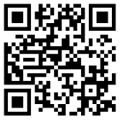据欧盟食品安全局(EFSA)消息,12月21日欧盟食品安全局就琼脂作为食品添加剂的安全性再次发布意见。
欧盟专家组对琼脂的安全性进行评估发现,琼脂的基因毒性不会对人体构成影响,大鼠、小鼠实验也未发现致癌性,口服实验也未发现显著的副作用。因此专家组得出结论认为,没有必要制定琼脂ADI值,琼脂作为食品添加剂无食品安全风险。
部分原文报道如下:
The EFSA Panel on Food Additives and Nutrient Sources added to Food (ANS) provides a scientific opinion re-evaluating the safety of agar (E 406) as a food additive. In the European unio (EU), agar (E 406) has been evaluated by the Scientific Committee for Food (SCF) in 1989, who allocated to agar a not specified acceptable daily intake (ADI), and by the Joint FAO/WHO Expert Committee on Food Additives (JECFA) in 1974, who considered very few data to conclude to a not limited ADI. According to the conceptual framework for the risk assessment of certain food additives re-evaluated under Commission Regulation (EU) No 257/2010, the Panel considered that the safety assessment is limited to the use and use levels received from industry in 7 food categories for which data were considered in this opinion out of the 70 food categories in which agar (E 406) is authorised; an indicative high refined exposure assessment up to 26 mg/kg body weight (bw) per day has been calculated in toddlers at the 95th percentile (non-brand-loyal scenario); agar is unlikely to be absorbed unchanged and slightly fermented by intestinal microbiota; sufficient toxicity data were available; there was no concern with respect to the genotoxicity of agar; no carcinogenic effects were reported in carcinogenicity studies in mice and rats at the doses of 4,500 mg/kg bw per day and 2,500 mg/kg bw per day, respectively, the highest doses tested; oral intake of agar (4,500 mg/person corresponding to 64 mg/kg bw per day) was tolerated in humans for 12 weeks without noticeable side effects. Therefore, the Panel concluded that there is no need for a numerical ADI for agar and that there is no safety concern for the general population at the refined exposure assessment for the reported uses of agar as a food additive.
原文链接:http://www.efsa.europa.eu/en/efsajournal/pub/4645



